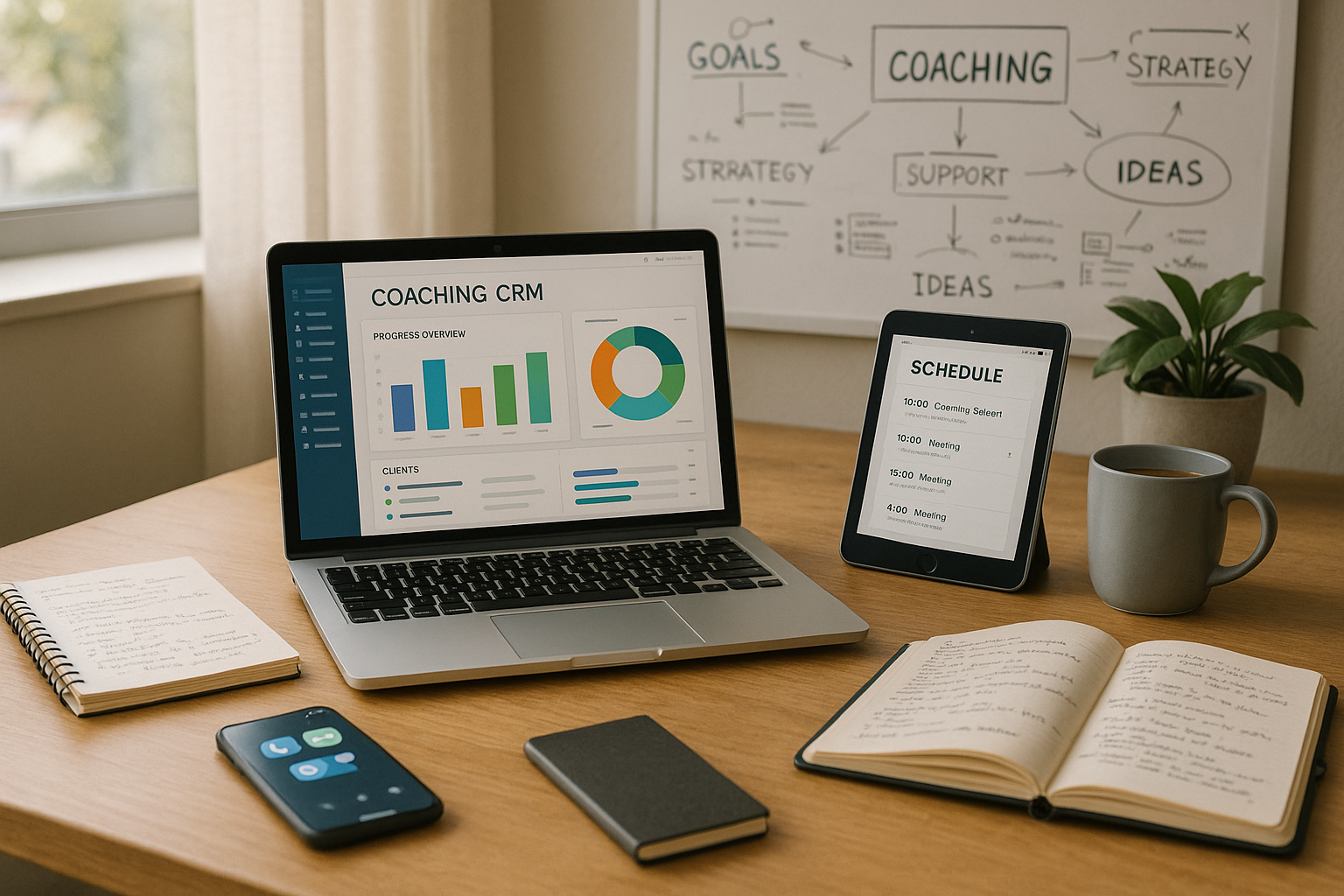Why do you need CRM for online retail?
Retail programs have become an important tool for a successful trading business today. When used effectively, IT programs allow retailers to gain significant competitive advantages. The growing requirements of trading companies and the need to quickly process large amounts of information stimulate the emergence of new, more advanced industry-specific retail programs, including cloud-based ones with advanced functionality.
Modern retail programs allow you to process and analyze data in real time, plan the main indicators of store performance (turnover, profit, number and average purchase size), analyze the efficiency of using square meters of retail space, and conduct a planned and actual analysis of indicators.
It is also important to be able to keep financial and accounting records, as well as settlements with suppliers. It is necessary to analyze the structure of purchases and the dynamics of the average check to increase the effectiveness of loyalty programs in stores.
The wide functionality of industry-specific programs for retail is a tool for timely management and strategic decision-making, as well as efficient resource consumption.

[Related Article: Best HIPAA Compliant CRM Software]
What should a CRM for retail have?
The peculiarity of industry-specific programs for retail is the need to work with a large assortment that is quickly updated and combine product properties into categories to identify common patterns, make decisions at the level of product category management.
The effectiveness of product category management, maximum satisfaction of customer demand depends on how well the program for retail stores has a mechanism for grouping goods (nomenclature reference book, product classifier). Tools for analyzing the profitability of groups and subgroups of goods, the efficiency of the use of retail space, accounting for sales profitability, accounting for seasonal fluctuations in demand, accounting for price elasticity, and competitors' pricing policies allow you to rationally build the management process and form an optimal assortment of goods.
A basic CRM can be adapted to almost any business by adding necessary and removing unnecessary functions. At the same time, some of its features are universal for any online retailer.
Prompt order processing
Implementing CRM allows you to speed up the reception of incoming calls, emails, chat messages, and social media messages and process them with maximum efficiency. Thanks to integration with the warehouse accounting system, order processing module, and customer and product database, any request can be fulfilled almost instantly. In particular, CRM allows you to display the entire available list of products in a few clicks, provide customer contacts, indicate the current status and location of goods, and set up notifications by e-mail, SMS, or messengers.
Warehouse accounting
One of the problems of online retail trade in goods is the prompt organization of accounting for available goods. The implementation of a CRM system can help with this due to the presence of a warehouse accounting module that allows you to control receipts, expenses, transportation, inventory, write-offs, and monitoring of product balances. The system also allows you to centrally store warehouse documentation, such as contracts with suppliers, receipt and expense documents.
Synchronization with the delivery service
Implementation of CRM for online retail takes business to a new level by optimizing and accelerating its work. The synchronization of the system with transport delivery services helps to achieve this. Thanks to this feature, the customer is able to choose a convenient way to deliver the order and track the goods in real time without bothering store managers with constant calls. CRM can not only send the customer an SMS with the tracking code of their order, but also show the location of the parcel using their personal account on the website. This simplifies the work of business employees and increases customer satisfaction.
Detailed sales analytics
The main indicator of the success of any business is undoubtedly the number of sales because the company's profit depends on them. Using CRM for online retail allows you to automatically control the store's sales funnel, tracking and analyzing the reasons for the "loss" of customers at each stage of the purchase. The system itself compiles reports on the number of transactions for the entire sales funnel and the speed of processing orders received in the final stage. Detailed analytics of the sales funnel allows you to quickly identify and eliminate the causes of insufficient conversion in retail.

Integration with telephony and services
Nowadays, negotiations and communication in messengers are already an integral part of business processes, so the implementation of CRM for retail involves integration with telephony and services. This allows you to record all negotiations and correspondence, which improves the quality of work with customers. Even without checking records, managers begin to show more responsibility when communicating with customers. In addition, CRM allows you to centrally store all the necessary contacts of both customers and employees, which saves time and effort to find the necessary information - all data is available in a few clicks.
Work with the client base
The customer base is a valuable asset for any business, and the volume and relevance of its data allow the company to effectively interact with customers and ensure repeat sales. CRM for a retail store helps to store and analyze information from the customer base, allowing you to customize your business marketing activities according to customer requests. An advantage is the ability to integrate the database with third-party services, such as IP telephony or e-mail.
Automation of retail business processes
CRM automates processes such as:
- Inventory of goods by barcode;
- monitoring and analysis of prices when buying and selling goods;
- the ability to sort goods by category;
- integration with various payment systems;
- promotion of discounts under loyalty programs.
Management of promotions and sales
To the previously mentioned CRM capabilities for a retail store, automation of promotions and sales management should be added. In particular, the system allows you to:
- create and update a calendar of promotions for a balanced impact on the market
- evaluate the effectiveness of promotions, taking into account the main and additional costs
- generate reports on the current course of the promotion by customer;
- calculate the effectiveness of the promotion based on sales and expenses.
Interaction of stores
Any successful company faces the need to scale up when the business turns from a single store into a retail network. And this becomes a problem: you need to combine financial accounting, documentation, and employee communication into one. Using CRM for a retail chain allows you to centralize all stores.

Advantages of a CRM system for a retail store
Reference marketing strategy
CRM is perhaps the most effective tool for the marketing department, where customer profiles will provide ample opportunities for new campaigns. Since CRM programs also simplify and systematically organize these profiles, the marketing department will be able to segment customers more easily, target groups for advertising campaigns, or create new promotions. Managers will have clear and easy-to-use analytics on customer behavior data, allowing the team to not only create the right products and promotions but also launch them at the perfect time.
Loyalty program and work with bonus cards
Since CRM makes a detailed record of every purchase, loyalty programs can be easily built where customers are offered points and discounts. When implemented correctly, a loyalty program to retain old customers is bound to be much more affordable than any advertising campaign for new customers, and CRM has all the data you need.
In online retail, including additional information with purchases, such as shipment tracking and order status updates, will provide consumers with certainty and mark the retailer as a trusted brand. Additionally, offer curation and sale alerts will keep customers coming back for more.
Another aspect that can be significantly improved in customer service is the area of call and chat services. While interacting with call center employees often feels uncomfortable, using CRM will allow these exchanges to be much more helpful. For example, having an extensive history with all of the customer's past history will help find the right agent for the solution, as well as help that agent with how they should approach the customer's problem. Customer support is the most important aspect of a brand's image, and if it's done right, brand loyalty is bound to increase.
Identification of store visitors, individual offers
Once accurate customer segmentation has been achieved, CRM programs can be used to continuously target specific customers. With the systematized data collected about each customer about their habits and desires, the program will allow retailers to send personalized special offers that are relevant to the recipient without appearing obnoxious or intrusive.
CRM programs can use page visits, wishlists, and click interactions to achieve even greater accuracy in determining preferences. Depending on the company's workflow mode, targeted advertising campaigns can be launched either through search engines or social media platforms, both of which have a higher number of unique page views than the average website.
Here are 7 of the top CRM software for retail businesses:
1. Salesforce
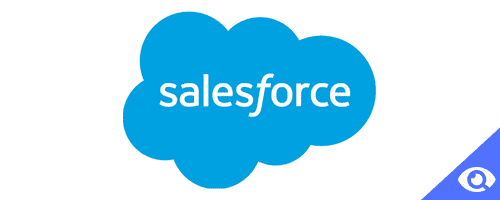
Salesforce is a cloud platform that offers a lot of interesting things besides the CRM part. Salesforce allows you to create and deploy customized solutions, automate business processes, and integrate with external applications.
Most of the world's enterprise companies are Salesforce customers and use this platform as a solution for their business needs. Among them: Adidas, AWS, Canon, Philips, Toyota, American Express, Western Union, Cisco, KLM, and many others.
You can track and manage the performance of stores on your territory. Users can schedule visits for sales representatives and assign tasks to be completed during the visit. Salesforce maps help you create optimal routes for field representatives. With CRM Analytics, you can increase sales, improve the in-store experience, identify stores at risk, and increase the effectiveness of field representatives. You can also use Salesforce surveys to get important data about your business from channel partners and use Einstein object detection to automate product identification and placement.
2. HubSpot
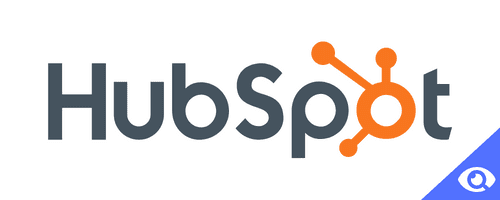
HubSpot CRM is an easy-to-use system that your sales team will love. It gives you everything you need to store contacts and companies, track deals and easily manage tasks. Customize your fields and filters to find the right contacts better and faster. HubSpot CRM makes it easy to communicate with potential customers. Work your inbox or send emails, schedule appointments and make calls right from your contact account.
Today, the typical sales process happens across dozens of channels and thousands of touchpoints. HubSpot CRM knows it all, providing useful information when and where you need it.
Most importantly, Hubspot CRM is free for any number of users, contacts/leads and transactions. No restrictions on users means you can add whoever you need: top managers who may be interested in dashboards and reports, salespeople working with CRM, as well as marketers, presales, customer support, etc.
Add the Hubspot script to your own site, and Hubspot will start tracking visitors' actions. But unlike Google Analytics or Yandex Metrics, Hubspot is a CRM system, in which all user activity on the site is tied to his card in the system. By opening a contact record, you can see all the pages this customer has visited, the forms he has filled out, as well as information about where he came to your site for the first time (search engines, social networks, advertising, etc.).
3. Pipedrive
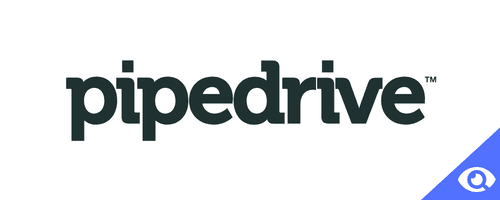
Pipedrive aims to offer its customers a sales-focused CRM that allows users to visualize their sales processes from start to finish. Pipedrive is accessible through a web browser or iOS and Android mobile apps. It also allows you to send customizable marketing emails and connect to more than 250 integrations with a one-click installation.
Pipedrive also has a good set of integrations, so you can easily build Pipedrive into your existing technology stack. Plus, you get all the tools you need to segment customers, personalize email campaigns, organize leads, predict sales trends, and more.
With Pipedrive, you can gain valuable insights with powerful reports such as revenue forecast reports and performance conversion reports.
Pipedrive comes with an extensive help center and an active community where you can find answers to most of your questions. You can also add your own questions to get their solution. They have an academy for their users to help with all potential problems and queries. They also have active webinars with product demonstrations.
4. Freshsales
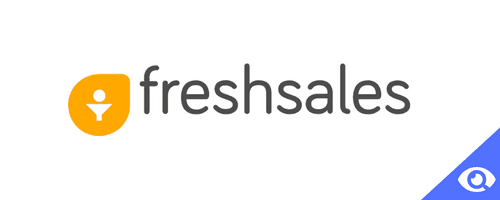
Freshsales is a full-featured sales force automation solution. It provides everything a salesperson needs to attract quality leads, conduct contextual conversations, drive deals with artificial intelligence-based analytics and maintain customer relationships.
With built-in email, phone, chat and telephony features, Freshsales allows sales teams to spend more time on sales, automating the sales process and increasing the efficiency and productivity of their day-to-day operations. With Freddy AI, sales associates can gain insight into what deals are best to close and what actions to take, as well as predict revenue with sales forecasting. With Freshsales, companies can take the next step forward to powerful pipeline management. In addition, the ability to use built-in CPQ makes creating and sharing offers and other vital sales assets easy and convenient.
5. Insightly
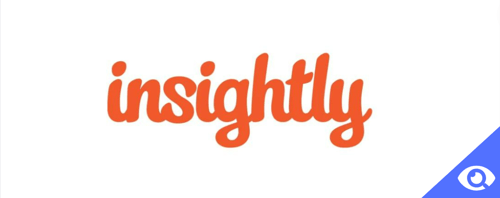
Insightly is a versatile and comprehensive system for project management and building effective relationships with clients. Detailed reporting and electronic workflow will increase productivity many times over, and task templates make working with the system and its implementation easier.
Insightly CRM turns out to be a direct competitor to HubSpot CRM because it targets approximately the same market segment. And to be more specific, Insightly is a cloud-based customer relationship management system that offers small and medium-sized businesses a number of tools for marketing campaigns, managing their sales processes, project management, and also facilitates integration with related applications such as Microsoft Outlook and Gmail.
Insightly Free CRM provides single sign-on OAuth (SSO), accounting integration, customizable reports and charts, bulk email and customizable email templates, task and project management, lead and sales management, self-service support, a limit of 2,500 records, 2 custom fields per record type - 10 bulk emails per day, plus up to 2 users.
[Related Article: The best 5 Insightly Alternatives for Your Business]
6. Zoho
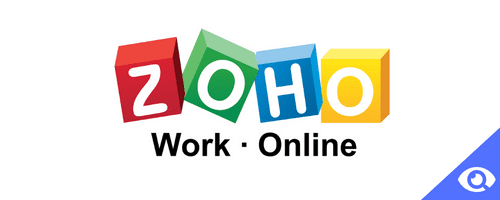
Zoho CRM is a cloud-based customer relationship management system that allows businesses to track and analyze their transactions and integrates with other applications to provide a complete ecosystem.
Zoho's CRM application is designed for businesses that need an easy-to-configure, easy-to-use, and customizable solution.
Its key features include one-click access to important information, a task manager and a contact manager.
Zoho allows full control over your company's operations, sales, marketing and support team management. Extensive data collection and processing capabilities into statistical reports will help increase ROI and create a work plan for employees. Its sales automation feature, for example, includes workflow automation, account management, contact management, deal management and lead management. It then supplements this with collaboration, marketing automation, sales forecasting, performance management, partner relationship management, sales support and intelligence.
Zoho Inventory is a Web-based application that helps small and growing businesses manage their orders and inventory. With multi-channel sales, shipping integration and powerful inventory control, users can optimize the management of their inventory and orders, from buying to packing to payments. Sycs with Amazon, eBay, Etsy and Shopify so you can expand your selling capabilities. It's pre-integrated with Zoho Books and Zoho CRM to combine interface and server operations. There is also a mobile add-on that allows users to view order status in real time from anywhere in the world.
7. Microsoft Dynamics 365
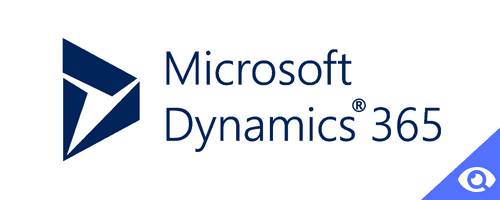
Microsoft Dynamics 365 for retail is an end-to-end retail experience that provides a single Commerce for all channels, including sales, mobility, intelligence and productivity, to help retail employees and workers achieve a more efficient experience in the cloud, rather than on mobile devices. The app provides full support for a wide range of business processes, including sales, inventory and channel management capabilities, while providing impressive impressions between users at all touchpoints.
Create impressive marketing opportunities by enhancing brand promotion and encouraging buying opportunities by triggering users with cross-channel technology and personalized commerce capabilities.
Deliver exceptional service - Help employees deliver unparalleled customer service by providing the tools they need to succeed, from customer and inventory information to employee schedules.
Optimize retail operations with analytics solutions - Make smart data-driven decisions to optimize business, from promotional materials to inventory to fulfillment.
Adapt to ever-changing demand by combining physical and digital sales channels with the Dynamics 365 Commerce solution.
Comparison table of features and capabilities
| Feature/CRM | Salesforce | HubSpot | Pipedrive | Freshsales | Insightly | Zoho | MD 365 |
| Sales automation | + | + | + | + | + | + | + |
| Marketing automation | * | * | - | * | - | * | * |
| Customer service | + | + | - | + | + | + | + |
| Analytics | + | + | + | + | + | + | + |
| Mobile app | + | + | + | + | + | + | + |
| Lead management | + | + | + | + | + | + | + |
| Deal management | + | + | + | + | + | + | + |
| Contact management | + | + | + | + | + | + | + |
| Project management | - | + | - | - | + | + | + |
| Sales forecasting | + | + | + | + | + | + | + |
| Pipeline management | + | + | + | + | - | + | + |
How to choose CRM for Retailers: summarizing
When it comes to choosing a customer relationship management system (CRM), it is important to consider your specific interests and business goals. Each software mentioned in this blog post has its own unique features and capabilities that make it suitable for different types of businesses.
For beginners, small online stores, and small businesses, Freshsales and Insightly are excellent options. These platforms offer user-friendly interfaces and are designed to meet the needs of smaller-scale operations. They provide essential features such as lead and contact management, sales automation, and sales forecasting. With Freshsales, you can also leverage artificial intelligence-based analytics to drive deals and maintain customer relationships.
On the other hand, large companies focused on corporate sales or wholesale suppliers may find Salesforce, HubSpot, and Pipedrive more suitable. These CRM systems offer robust features and integrations that cater to the complex needs of larger organizations. With Salesforce, you can take advantage of advanced sales automation, marketing automation, and customer service capabilities. HubSpot provides a comprehensive suite of tools for sales, marketing, and customer support, while Pipedrive offers a sales-focused CRM that allows users to visualize and manage their sales processes from start to finish.
If you're facing difficulties in selecting the right CRM, don't hesitate to reach out to us. We specialize in providing customized solutions for business development and can help you find the perfect CRM system for your needs.
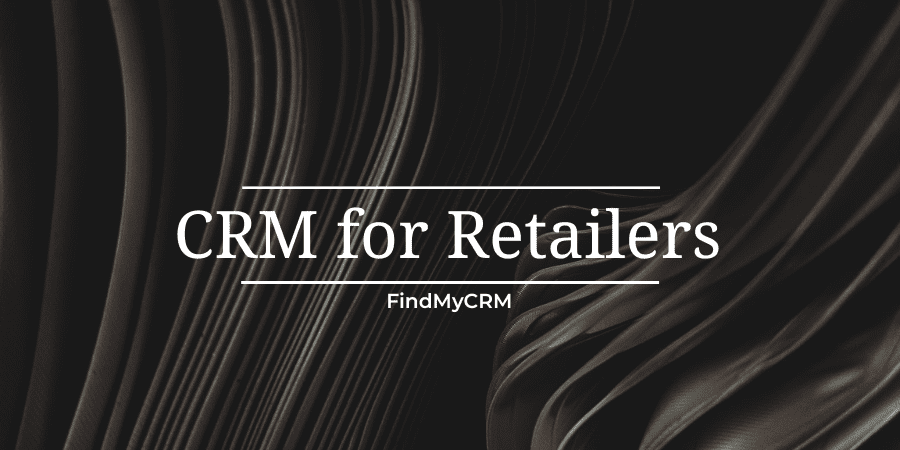
.png?width=140&height=140&name=Noah%20(1000%20x%201000%20px).png)

